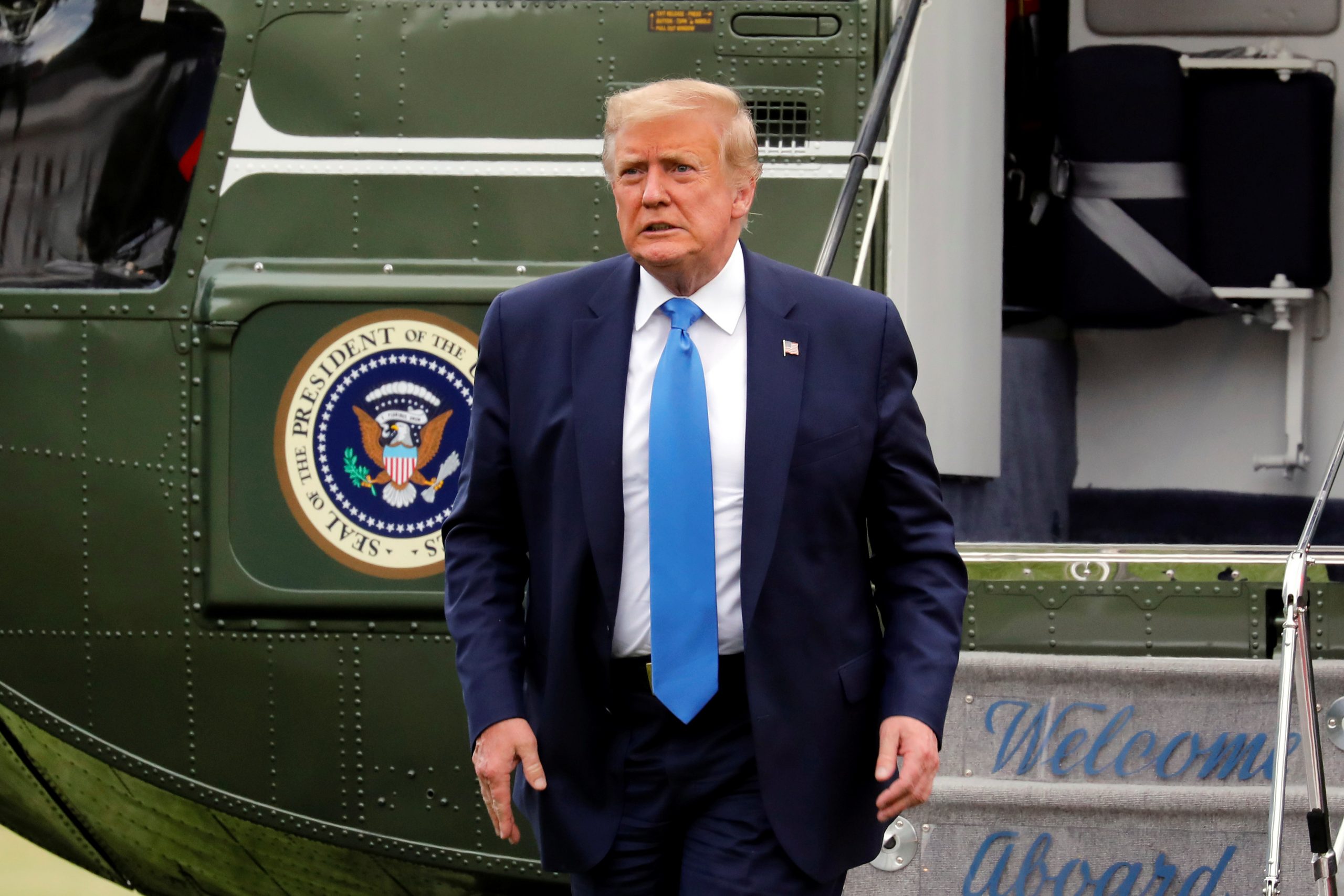Republican President Donald Trump and his Democratic opponent, Joe Biden, have contrasting views and records on criminal justice and the U.S. racial divide, issues that have risen in prominence in the 2020 election.
Here is a look at their stances and backgrounds:
RACE AND RHETORIC
Biden has said he was motivated to run for president by Trump’s comments that “both sides” were to blame for violence between white supremacists and counterprotesters at a 2017 rally in Charlottesville, Virginia, comments that fit into what critics see as a pattern of race-baiting by Trump.
The president has very few Black Americans among his advisers and White House staff. Biden, who was vice president for the first African-American U.S. president, Barack Obama, has pledged that his Cabinet, judicial appointments and running mate will reflect the country’s diversity.
POLICING
Trump has responded to protests over the May 25 death of George Floyd in Minneapolis police custody by urging a militaristic response.
He signed an executive order taking steps toward police reform, including encouraging police to use the latest standards for use of force, banning chokeholds unless an officer’s life was in danger, and called for legislation to do more.
But Democrats faulted the order for allowing some exceptions to the chokehold ban and placing no restrictions on warrants that let police enter a suspect’s property without knocking. The party has put forward a sweeping bill with a more categorical ban on both practices.
Biden has accused the Trump administration of lax oversight of police departments accused of civil rights violations. He also has said he supports reforming qualified immunity, a legal doctrine that shields officers from victims’ lawsuits. Trump’s spokeswoman has said he would not support ending that immunity.
The former vice president has resisted activist calls to “defund the police,” instead promising to invest $300 million in a program that gives grants to hire more diverse officers and train them to develop less adversarial relationships with communities.
CRIMINAL JUSTICE REFORM
Trump in 2018 signed into law the First Step Act, a bipartisan measure reducing mandatory-minimum sentences, expanding drug treatment programs for prisoners and allowing some prisoners to finish their sentences early with good behavior.
Trump also has supported some “tough-on-crime” policies that disproportionately affect minorities, including seeking to restart executions of federal death row inmates.
Biden wants to eliminate the death penalty, solitary confinement and jailing accused criminals until they pay a cash bail. He has pledged $20 billion in grants for states to reduce social ills like illiteracy and child abuse in exchange for scaling back mandatory-minimum sentences.
EDUCATION AND THE ECONOMY
Trump often touts Black unemployment, which hit the lowest levels on record before the coronavirus pandemic, when talking about his policies on race.
Biden has called for laws making it easier to sue over wage discrimination. He would create new fair-lending and fair-housing protections, provide $300 million in grants to cities that reduce discriminatory zoning regulations and create a task force to address why Black people disproportionately die from COVID-19. He also would have a group study the feasibility of paying cash reparations to Black people as a result of slavery and segregation.
Both candidates have voiced support for historically Black colleges and universities (HBCUs). Trump signed a law that the White House said made $255 million in funding for the institutions permanent and increased money for the federal Pell Grant program. The administration also touts a relaunched HBCU Capital Finance Board, legislation adding money for scholarships and research at HBCUs, and forgiving $322 million in disaster loans to four such institutions in 2018.
Biden’s plan making public colleges and universities tuition-free to most students would apply to public HBCUs, and he would also invest more than $70 billion in the schools to start research institutes and for tuition support.
(Reporting by Trevor Hunnicutt in New York and Jeff Mason in Washington, Editing by Soyoung Kim and Diane Craft)

























 Continue with Google
Continue with Google